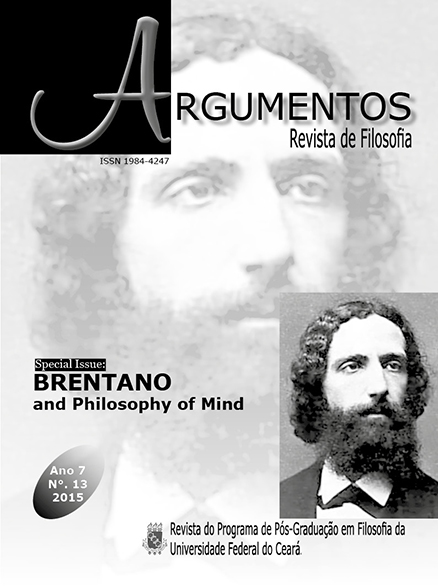Brentano’s ‘revised’ theory of consciousness
Keywords:
Philosophy of mind. Brentano. Transitivity principle. Intentionalism. Consciousness.Abstract
Three substantial issues raised by Fisette’s interpretation of Brentano’s views on consciousness are discussed. The first concerns the difference between “transitive” and “intransitive” consciousness. The second concerns what Fisette proposes as Brentano’s revised theory of consciousness, where the notion of a mental agent as a “unified real being” plays a central role. This notion is rejected and some alternative interpretations, which are in the spirit of Brentano’s theory, are proposed and defended. Finally, it is pointed out that Fisette’s interpretation remains unclear as to whether Brentano’s view is compatible or not with Rosenthal’s transitivity principle. I argue that while Brentano’s revised theory is not intentionalist, as Fisette makes it clear, it is nonetheless compatible with the transitivity principle, contrary to what Fisette claims.
Downloads
Published
Issue
Section
License
Argumentos magazine is licensed under an International Creative Commons Attribution License.
The Magazine uses CC BY inclusion
1) The authors retain the copyright granted to the magazine or the right to initial publication, with the work regularly licensed under the Creative Commons Attribution, which allows the sharing of the work with acknowledgment of authorship and initial publication in this magazine.
2) The authors are authorized to contract additional applicable contracts, for non-exclusive distribution of the version of the work published in this journal (for example, publication in the institutional repository or as a chapter of the book), recognition of authorship and initial publication in this journal.
3) Authors are authorized and encourage to publish and distribute their work online (for example, in institutional repositories or on their personal pages) at any time before or during the editorial process, as they can generate productive changes, as well as increase the impact and reference of published work.




.jpg)










._._3.png)
1.jpg)
._._._.png)
